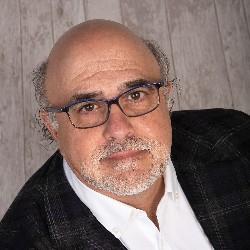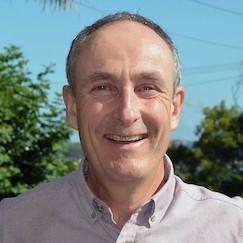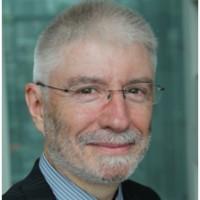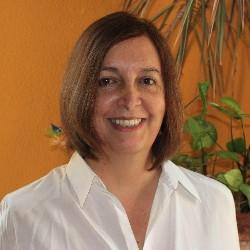Speakers
- Boada, Joan (ES)
- Boniwell, Ilona (UK)
- Dini, Silvana (IT)
- Durán, Maite (ES)
- Farmer, Sam (NZ)
- García, Miguel (ES)
- Green, Suzy (AU)
- le Roux, Anna-Rosa (ZA)
- Luna, Roberto (ES)
- Montero, Xavier (ES)
- O'Riordan, Siobhain (UK)
- Palmer, Stephen (UK)
- Pavlovic, Jelena (RS)
- Queralt, Íngrid (ES)
- Quintana, Joan (ES)
- Reche , Elvira (ES)
- Salanova, Marisa (ES)
- Stelter, Reinhart (DK)
- Valderrama, Beatriz (ES)

Joan Boada (ES)
Título
El rol de la Psicología Coaching en la gestión del talento humano en ambientes VUCA
Resumen
El entorno social, económico, así como, el mercado laboral se caracterizan como líquidos. Lejos quedan los entornos sólidos, fijos y estancos. Además, todo ello se caracteriza por ser volàtil, incierto, complejo y ambigüo (VUCA).
Currículum vitae
Professor Full-Time of the University of the Rovira i Virgili University (Tarragona, Spain) (Dept. of Psychology). Senior Coach by AECOP, has more than 3,500 hours of experience in coaching sessions. Doctor in psychology from the University of Barcelona. He has directed 10 doctoral theses. He currently directs 12 doctoral theses in co-supervision. Has directed a doctoral thesis on coaching. Tree stretch of research and one of transference for ANECA. Member of various scientific committees of various congresses. He is the co-author of 4 books, more than 40 book chapters and more than 65 articles in journals with ISI-JCR impact index. He has presented more than 100 communications to national and international congresses. Director of the Research Group "Spitzen Value, Human Resources" of the Rovira i Virgili University (Tarragona, Spain). He has obtained tree awards in the field of Human Resources. Collaborator and lecturer in public and private institutions (national and international). Stays at universities and foreign research centers (Perú, México, etc.). Lines of specialization and research: Human Resources and Coaching, Occupational health, Psychosocial risks, Creativity and Entrepreneurship. Subjects taught: Social Psychology, Psychology of Organizations, Negotiation Psychology, Occupational Health (doctorate). He has directed university extension courses and HR symposia. He has directed transfer projects through the URV Foundation to multinational companies and public institutions. Judicial expert. Teaching at masters: Open University of Catalonia, University of Almeria, Pompeu Fabra University. Pontifical Catholic University of Perú. Member of: COPC (Col·legi Oficial de Psicologia de Catalunya), EAWOP (European Association Work and Organizational Psychology), AEDIPE (Spanish Association of Personnel Directors), ACCID (Catalan Association of Compliance and Management), ACPJF (Catalan Association of Judicial Experts i Forensics), SCEPS (Spanish Scientific Society of Social Psychology), AECOP/EMCC-Spain (European Mentoring & Coaching Council).

Ilona Boniwell (UK)
Título
Positive Psychology Coaching for Team Resilience
Resumen
The Covid-19 pandemics has thrown the world of work in chaos, with many organisations having to adapt to rapidly changing circumstances. Many of the teams used to cooperating around an office base have found themselves needing to operate virtually, often without clarity on operating modalities, new task distribution or performance expectations. Individual level pressures, such as health concerns, home-schooling one’s children and merged home-work boundaries added to rising stress and exhaustion. Over and above individual resilience capacities, what are the drivers predicting resilience at the team level? How can collective efficacy and agility be optimised under conditions of increased stress? What positive organisational practices are most suitable for on-line delivery?
We will address the above questions by drawing on the new research findings around team resilience and my practical experience of accompanying multiple teams through the pandemics. This presentation will consider methods that can be used to develop team resilience resources, identifying and acting upon team resilience levers and optimising strengths-task fit through collective job crafting.
Currículum vitae
Ilona Boniwell is a professor of positive psychology at the University of East London and the original founder of the UEL’s MSc in Applied Positive Psychology, the first ever degree of this type in Europe. She is one of the world leaders in positive psychology, working in the field for over 20 years, originally mentored by Martin Seligman. Professor Boniwell wrote or edited twelve books, delivered over 200 keynotes and a TEDx, founded the European Network of Positive Psychology, organised the first European Congress of Positive Psychology and was the first Vice-Chair of the International Positive Psychology Association (IPPA). She is also a passionate practitioner of positive psychology. As a CEO of Positran she consulted the Governments of UAE and Bhutan and many major international companies, including ClubMed, L’Oréal, Unilever, Nestle, EY, Microsoft and BNP Paribas.

Silvana Dini (IT)
Título
An emergency room or a good habit? How Italian coaches are using supervision.
Resumen
In Italy, supervision in coaching is experiencing a phase of new fervor and initiatives. Four coaching professional bodies with a significant presence in the Italian coaching arena - EMCC (European Mentoring and Coaching Council), ICF Italia (International Coach Federation), AICP (Associazione Italiana Coach Professionisti), SCP Italy (Society for Coaching Psychology Italy) - have set up an inter-association table aimed at promoting the culture of supervision in coaching and writing the first Italian inter-association Manifesto of supervision in coaching. The four associations share that supervision plays a pivotal role in assuring the quality of coaching services, in developing and sustain the coaches and the coaching psychologists in their CPD.
The keynote session aims to offer the state of the art of coaching supervision in Italy and to present the results of the "Inter-association Survey on Coaching Supervision" launched in January 2022 (EMCC, ICF Italy, AICP, SCP Italy, 2022).
The online questionnaire based survey is aimed at understanding the use of supervision by coaches and coaching psychologists in the last two years of COVID pandemic, deepening the following aspects: the value perceived by the coaches and the coaching psychologists, the expected benefits, the reasons why they might use supervision, main obstacles to use supervision, the supervisor selection criteria.
Among the results of previous surveys (SCP Italy, 2012; 2014) it emerged that the main function of supervision stills tends to be reparative, post hoc (to face difficulties, personal blind spots & blocks) instead of developmental, ante hoc. We will see together the results of this the current Supervisee and Supervisor Identikit and if and how this aspect is evolving.
Currículum vitae
Silvana Dini is a Coaching Psychologist (FISCPAccred), Coaching Supervisor (ISCP Accred), Management Consultant. Co-founder and Steering Committee member of SCP Italy, ISCP Honorary Vice-President. Co-director of the Advanced Training Course in Business Coaching Psychology at the Università Europea di Roma.

Maite Durán (ES)
Título
Visualizando al psicólogo o psicóloga coach competente
Resumen
Según el 4º Estudio Global sobre Coaching de ICF, en el año 2019, habían 71000 coaches acreditados, lo que supone un incremento del 33% en referencia al último estudio del año 2016. Uno de los retos que tiene que cumplir un/a psicólogo/a coach a lo largo de su recorrido es el de seguirse desarrollando tanto profesional como personalmente. Desde el punto de vista del desempeño profesional, tener los conocimientos y la experiencia facilita el desarrollo del coachee pero uno de los elementos fundamentales que entra en juego es la relación con el cliente, con lo que la clave del coach competente está justamente en sus competencias personales para poder ofrecer lo mejor de si, tanto al coachee como al propio proceso. Partiendo de esta base, y partiendo de un entorno cambiante y cada vez más exigente, como profesional competente, el psicólogo/a coach tiene que dar un paso más y desarrollar metacompetencias para poder adquirir otras competencias que le permitan hacer un acompañamiento más efectivo y de mayor calidad. Hablaremos sobre cuales son dichas metacompetencias y como pueden influir tanto en la construcción de la relación entre coach y coachee, como en el proceso de coaching.
Currículum vitae

Sam Farmer (NZ)
Título
The Benefits of Coaching Psychology Supervision: Cui bono?
Resumen
Whilst the benefits of supervision in coaching psychology continue to be debated, the discussion tends to focus upon the supervisee. This presentation will aim to: broaden the discussion to a consideration about whom – and what – else might benefit from the supervisee being supervised; and, as a result, give greater weight to the argument for the value, and necessity, of coaching psychology supervision.
Currículum vitae
Sam is Owner-Director of Enhance Facilitation Limited and a registered New Zealand/ Aotearoa Coaching Psychologist. He received his Coaching Supervisor Accreditation from Oxford Brookes Business School and is an Accredited Supervisor and Associate Fellow of the International Society for Coaching Psychology. Sam also co-founded and was the first Chair of the New Zealand/ Aotearoa Coaching Psychology Special Interest Group. Sam’s model of supervision is based upon the philosophy that most people have a level of discomfort or dissatisfaction with their practice, and want to enhance the knowledge and skills that they put into – and the meaning that they gain from – their work as a result. To his work, he enjoys bringing a structured and ethical approach that is informed by his client’s perspective, Te Ao Māori (Māori worldview), Acceptance and Commitment Training, Compassion-Focused Therapy, as well as models informed by change- and systems-theories. Naturally, for his own professional development, Sam values and regularly utilises (both hierarchical and peer) supervision. In addition to providing supervision, Sam coaches diverse clients across the state, not-for-profit and commercial sectors to enhance their own authentic and effective professional styles. In relation to his areas of specialism – leadership coaching, psychosocial growth, professional supervision – Sam has provided a number of international presentations and articles, including: “What is the nature of supervision in Coaching Psychology?” Psychology Aotearoa; “How does a coach know that they have found the right supervisor?” in Coaching: an International Journal of Theory, Research and Practice.

Miguel García (ES)
Título
Supervisión y desarrollo de competencias en coaching
Beneficios de la supervisión en la Psicología Coaching.
Currículum vitae
Licenciado en Psicología y Doctor en Psicología Social por la Universidad Complutense de Madrid (UCM). Psicólogo Experto en Coaching (PsEC-0029) por el Colegio Oficial de la Psicología de Madrid. Miembro de la International Society for Coaching Psychology (MISCP-591). Director del Programa Superior de Coaching Psychology y Coaching Psicológico de la Facultad de Psicología de la UCM. Actividad docente e investigadora en la Facultad de Psicología de la UCM. Intervenciones para el desarrollo de personas, grupos/equipos y organizaciones: coaching; diseño y aplicación de acciones formativas o entrenamientos; consultoría. Publicaciones e intervenciones en jornadas, congresos y cursos de especialización y Máster sobre dichas temáticas.

Suzy Green (AU)
Título
The utilisation of Positive Psychology Coaching in Organisations to enhance mental health, wellbeing and capability building for all.
Resumen
With the emergence of Positive Psychology Coaching in the Workplace (Smith, Boniwell & Green, 2021) organisations are beginning to consider the utilisation of coaching in the workplace beyond leadership. This move to providing coaching more broadly within organisations is being referred to as the “democratisation of coaching”. As technology supports organisations to provide coaching to their broader employee base via virtual delivery and reduced fee structures, the focus of coaching is moving from a traditional focus on coaching for performance to coaching for wellbeing. Even in executive and leadership coaching, there is an increased interest in "third generation coaching" (Stelter, 2014 and Grant, 2017) which focuses on both performance and wellbeing, and values and meaning in response to the increased mental health concerns and burnout in organisations caused by the effects of the global pandemic. In this presentation, by Dr Suzy Green, a leader in the field, will provide a brief overview of the evolving field of Positive Psychology Coaching. Suzy will also provide examples of its current use in the workplace and Suzy’s vision for the future of PPC in organisations.
Currículum vitae

Anna-Rosa le Roux (ZA)
Título
Getting out of flatland to make real changes in our world
Resumen
Background
Many of the problems that we face today are framed as ‘wicked problems’ that arise when we face constant change that traditional processes cannot resolve, for example, biodiversity, waste management, temperature increase or energy consumption. It is not necessarily the degree of difficulty, but the interrelatedness of many facets that characterize these. Usually there is a degree of technical difficulty as well as a social complexity that makes these tough to manage. The same way that circular economies are a response to sustainable business, we need new solutions to facilitate the psychological transformation to include ecopsychology.
As coaching and consulting psychologists a sensitivity, awareness and consciousness that resonates with the emerging environmental challenges in our world are required as we practice our profession as ethical citizens.
Aims
What we know is required today is second order (transformational) change that is multi-dimensional, multi-levelled and radical, fundamentally different from what we have done before. The latter requires a shift in meaning. One of our only resources to drive this shift in meaning is accessing our human consciousness to create an inclusive level of awareness.
This paper aims to engage coaching and consulting psychologists in a thought experiment to create radical shifts in how we see the world and our place and role therein. We are required to be committed to a process where we are open to change ourselves and resonate with the aspirated consciousness of our clients.
In this paper, we propose that:
-
A different kind of thinking and being is necessary to respond to disruption in our lives (e.g. recognising the cost of sustainable solutions is a requirement for dialogue and planning in an inclusive manner)
-
We need to embrace an inclusive level of consciousness to get out of flatland and appreciate alternative perspectives (e.g. excluding those perspectives we don’t agree with leads to differential in our society and ultimately conflicting ideals)
We explore the concepts of transformational vis-a-vis translational change, integral levels of development, value shift, inclusive consciousness and engagement and quality contact.
Conclusion
In a disruptive world, where we are faced with complexities that seemingly do not have an answer, one of the authentic responses is to embrace our humanness (where immoral and illegal activities are not the same). Through accessing our human consciousness, we are able to develop meta-perspectives that guide us to connect with the world in a more balanced way. Getting out of flatland is a key proposition in this journey and opens up new impetus to embrace alternative broader perspectives, playing along in a world-centric state.
Currículum vitae
She is Honorary Vice-President of the International Society for Coaching Psychology; Chairperson - Interest Group in Coaching and Consulting Psychology; International Steering Committee of the First International Congress of Coaching Psychology; EXCO member of Society for Industrial and Organisational Psychology of South Africa; EXCO member of Association of Change Management Practitioners of Africa. SIOPSA Member Honore List; Fellowship, International Society for Coaching Psychology, outstanding contribution to the development of Coaching Psychology; President Award, SIOPSA for the contribution to Coaching Psychology locally and globally. Chapters in 2 books: “Anchoring OCD in Consulting Psychology” (2015) and “Contextualising coaching psychology within multi-cultural contexts” (2016). Dr Anna-Rosa le Roux is a registered Industrial/Organisational Psychologist (HPCSA) and holds post graduate degrees in Psychology and Leadership, Performance and Change (DPhil). She has delivered Consulting Psychology assignments in Europe, Africa and the Middle East for corporate, government and not for profit organisations and has represented South Africa for her profession in London, Sydney, Paris, San Diego, Rome and Barcelona. She co-founded Worklife Digital and Partners, which provides digital psychology journeys for a sustainable future. Integrative Enneagram Solutions (2017-2020); WoolWorths Financial Services: Head People/Organisational Effectiveness (2013-2017); Goldfields International: Regional Head, Talent & OD (2012–2013); JVR Consulting Psychologists Director (2009–2011), Requisite Business Solutions (2000–2008).

Roberto Luna (ES)
Título
Coaching Ejecutivo y liderazgo desde la gestión del talento
Resumen
Psicología Coaching Ejecutiva y liderazgo transformacional.
Currículum vitae
Catedrático de Dirección de Empresas en la Facultad de Economía de la Universidad de Valencia. Licenciado en Psicología, Doctor en Psicología Social, Experto en RRHH y Gestión del Talento. Investigador con más de 60 publicaciones científicas y autor de los manuales de RRHH: Gestión del Talento (Ed. Pirámide, 2018) y Recursos Humanos para Turismo (Pearson Prentice Hall, 2006). Divulgador científico de 7 libros de desarrollo profesional y personal siendo su último libro en 2021 "Liderar desde el Talento" (Ed. Alienta, Grupo Planeta). Con experiencia profesional en más de 100 empresas en temas de RRHH, Gestión del Talento y Coaching Ejecutivo. Conferenciante internacional en temas de gestión del talento. Ha sido profesor invitado en las universidades de Oxford (Inglaterra) y Middle Tennessee State University (EEUU), entre otras universidades.

Xavier Montero (ES)
Título
La Psicología Coaching como herramienta de apoyo en los procesos de transición laboral
Resumen
La Psicolgía Coaching aplicada a los procesos de transición laboral es una herramienta estratégica para las Organizaciones, no muy extendida en España.
Está diseñada para ayudar a las Organizaciones y a su talento a afrontar la transición y las desvinculaciones de forma innovadora, humanizándola y minimizando los riesgos inherentes a esta fase (pérdida del know-how, falta de entendimiento o un menor compromiso etc..).
Para el trabajador significa una transición gradual durante la cual prepararse adecuadamente para el comienzo de otra fase vital retadora y para la empresa tiene múltiples beneficios: posibilita una gestión y transmisión adecuada del conocimiento, facilita una desvinculación en buenos términos, supone un beneficio social adicional que ofrecer en esta etapa de relación profesional, refuerza el branding interno y externo, y también abre la puerta a una gestión de la diversidad generacional a través de un cambio de rol donde ese profesional deja esa primera línea de fuego para adoptar un rol de mentor hacia equipos o profesionales más nóveles o involucrándose en proyectos de duración determinada, donde su talento se une al de otros profesionales.
Cualquier cambio supone una oportunidad.
Currículum vitae
Licenciado en Psicología, especialidad Trabajo y Organizaciones por la Universidad de Barcelona. Máster en Dirección de Recursos Humanos por EADA. Es Psicólogo Coach acreditado por el Col·legi Oficial de Psicologia de Catalunya (COPC) y por la International Society for Coaching Psychology (ISCP). Psicólogo certificado EUROPSY Especialista en Psicología del Trabajo y de las Organizaciones, por la European Federation of Psychologists’s Associations (EFPA). Miembro y Tesorero de la Junta Directiva de la Sección de Psicología de las Organizaciones y del Trabajo (SPOT) del COPC, desde el 2014. Aporta más 33 años de experiencia dentro del mundo de la Consultoría de Recursos Humanos (reclutamiento, selección y coaching para directivos), tanto en firmas nacionales como internacionales.

Siobhain O'Riordan (UK)
Título
Navigating Transitions in the Workplace through Coaching Psychology
Resumen
The COVID-19 global pandemic has led to many people facing transition in their lives, communities, and workplaces. This can be accompanied by experiences of reduced performance, excessive demands and pressure at work, lowered resilience, or a lessened sense of self-efficacy and resourcefulness. Coaching psychology can help coachees to navigate periods of transition, and support people to tackle psychological challenges to enhance their wellbeing at work during periods of uncertainty (Palmer, Panchal & O’Riordan, 2020). When coaching positively towards the successful self-management of a transition at work, coaching psychology practice can focus on areas of performance, leadership, stress management, wellbeing as well as the coachees emotional management and performance interfering thinking.
This session will draw upon the fields of positive psychology, ecopsychology, solution focused and cognitive behavioural approaches. We will also explore ways we might use coaching psychology interventions and techniques, within transition coaching situations in the workplace. There will be a particular focus upon the INSIGHT coaching framework (Panchal & Palmer, 2011) to illustrate the application of coaching psychology within the workplace.
References:
Palmer, S. & Panchal, S. (2011). Developmental Coaching: Life Transitions and Generational Perspectives. Routledge.
Palmer, S., Panchal, S., & O’Riordan, S. (2020). ‘Could the experience of the COVID-19 pandemic have any positive impact on wellbeing?’ European Journal of Applied Positive Psychology, 4, 10, 1-13. http://www.nationalwellbeingservice.org/volumes/volume-4-2020/volume-4-article-10/
Currículum vitae
Dr. Siobhain O’Riordan PhD is the Founder Chair of the International Society for Coaching Psychology (ISCP) and a member of the International Research Centre Development Team of the ISCP International Centre for Coaching Psychology Research (http://www.iscpresearch.org). She is a Chartered Psychologist, a Chartered Scientist a Fellow of the ISCP, a Certified Principal Business Psychologist of the Association for Business Psychology, a member of the International Stress Management Association (ISMAUK) a member of the Association for Coaching, an Hon member of the Institute of Health Promotion & Education and an academic member of the Association of Rational Emotional Behavioural Therapists. She is also an ISCP Accredited Supervisor. In 2010 she received the Distinguished Contribution to Coaching Psychology Award (BPS SGCP) and in 2020 was given a Lifetime Achievement Award for contributions to coaching psychology by Coaching at Work. In 2021, Siobhain co-edited the book, Introduction to Coaching Psychology with Stephen Palmer. She is a past Editor of the publications The Coaching Psychologist and the International Journal of Health Promotion & Education. She is very active in editing journals. She is currently Editor of the International Journal of Coaching Psychology, Coaching Psychology International and Co-Editor of the European Journal of Applied Positive Psychology and the International Journal of Stress Prevention and Wellbeing.

Stephen Palmer (UK)
Título
An integrative positive psychology coaching approach informed by climate change science, applied to tackling eco-distress, ecoanxiety and ecodepression in order to maintain eco-motivation
Resumen
With the COVID pandemic, the past 2 years have been a very challenging and distressing period for many people around the globe. However, in parallel, many individuals have remained anxious about the serious impact of climate change upon the planet, biodiversity, weather systems and society. Young people have continued to hold school strikes for climate on Fridays. Just three weeks after this coaching psychology congress has finished, the UK will be hosting the 26th UN Climate Change Conference of the Parties (COP26) in Glasgow on 31 October – 12 November 2021. By bringing together heads of state, climate experts and campaigners, it is hoped that they will agree to coordinated action to tackle climate change. Yet, many people are not convinced that sufficient action will occur in time to stop the global rise in temperature. It’s no wonder that some young people and adults are stressed about the future. When feeling anxious and depressed our motivation is often reduced yet we may still wish to remain motivated. Coaching is one possible intervention to assist in maintaining eco-motivation.
This paper will look at an integrative positive psychology coaching approach informed by climate change science, applied to tackling eco-distress, ecoanxiety and ecodepression in order to maintain eco-motivation. The keynote will include what a coach and coaching psychologist may benefit from knowing about climate change if the issue arises in a coaching conversation. In this paper, eco-anxiety and eco-depression will be defined. Drawn from the International Society for Coaching Psychology (ISCP) survey results, strategies that coaches and coaching psychologists found helpful to tackle a coachee’s climate change anxieties will be covered. The keynote concludes with what the ISCP survey participants answered finishes with the question: should practitioners attend CPD on climate change related mental health issues?
Currículum vitae

Jelena Pavlovic (RS)
Título
Leader as Coach: Coaching Psychology for fostering Business Ethics
Resumen
Since the introduction of the concept of leadership in organizational and management theory, there has been an idea of different approaches, types or styles of leadership. Among many different constructs to describe leadership behavior, there has also been the idea of coaching as a leadership style. In general, the idea of leader as coach assumes participation, dialogue, collaboration in order to develop employees and teams. Coaching as a style of leadership has been described as a way to create a future ready workforce that continuously attends to its development. However, one aspect of leader as coach concept has been less in the spotlight in theory and practice – its impact on the ethical side of business. While it has been widely acknowledged that coaching style of leadership creates buy in for change and decreases resistances to change, it has not been sufficiently emphasized that coaching also creates a more egalitarian work environment. When leaders engage in coaching behaviors they may also contribute to respecting individual voice and internal frame of reference, appreciating diversity of perspectives and creating human encounters with their coworkers. Maybe leader as coach concept has been widely accepted in organizations for its developmental impact, but it also needs a different kind of rationale – ethical case for coaching.
Currículum vitae
Dr Jelena Pavlović is Associate Professor of Ogranizational Development and Change at Department of Psychology, University of Belgrade. She is also Founder and CEO of Koučing centar, a digital platform for delivering coaching and leadership development. She has authored numerous papers and a book "Coaching Psychology: Constructivist Approaches", published by Routledge (2021). She serves as an Associate Editor of Journal of Constructivist Psychology.

Íngrid Queralt (ES)
Título
El liderazgo sistémico
Resumen
Toda organización es un sistema vivo con sus estructuras de relación y de poder.
Mas allá de las competencias necesarias para liderar equipos, es básico conocer y entender el sistema donde se intentan promover cambios. Respetar su historia, mentalidad y sus leyes ocultas, pueden permitir que las personas en posición de liderazgo, ejerzan un liderazgo transformacional aceptado y vivido de manera sana y orgánica por las personas y la organización.
Un sistema es un conjunto de elementos conectados entre si, de tal manera que el movimiento o la posición de un elemento del sistema influye en el resto de manera inmediata. Así, cuando un elemento no tiene claridad sobre su posición y tiende a no ocupar su lugar, diferentes partes del sistema se ven afectados. Cuando cada elemento ocupa su lugar, el sistema se relaja. Observando las organizaciones como un sistema vivo, podemos ver como los principios sistémicos desarrollados per Hellinger, nos permiten dar sentido a las dinámicas que acontecen en los equipos. Así podemos ver que, en una organización sana, todos los miembros tienen el mismo derecho a pertenecer, hay un orden que facilita el desarrollo del sistema y un equilibrio adecuado entre lo aportado y lo recibido. Comprender las dinámicas que se establecen cuando alguno de los principios no es respetado y acompañar las personas a ocupar el mejor lugar posible en beneficio del desarrollo del equipo y la organización, es la gran aportación del liderazgo sistémico.
Currículum vitae
Licenciada en Psicología. A nivel formativo y profesional su experiència, se ha desarrollado en paralelo en los ámbitos de los Recursos Humanos y el desarrollo personal y organizacional, el ámbito terapéutico y el del coaching. En el ámbito organizacional es Máster en Dirección de Recursos Humanos y Consultoría Organizacional (UB), Posgrado en Ingeniería de Formación (UPC), Técnica en conciliación persona-empresa y Acreditada como Experta en Psicología del Trabajo y las Organizaciones por el Col·legi Oficial de Psicologia de Catalunya (COPC). En el ámbito terapéutico está certificada como Psicóloga General Sanitaria, es Posgrado en Terapia Psicológica Breve (UB), se ha formado en diferentes corrientes terapéuticas y se ha especializado en psicología sistémica. En el ámbito de la Psicología Coaching está formada diferentes corrientes y especializada en coaching sistémico. Certificada y reacreditada por el COPC como psicóloga coach. Ha sido Directora de Recursos Humanos y de formación de una organización empresarial durante 13 años, Consultora en Recursos Humanos y docente de la Universitat Rovira i Virgili en varios grados y del Máster de Dirección y gestión de RRHH y el Posgrado de Mediación.

Joan Quintana (ES)
Título
Lorem ipsum dolor sit amet, consectetur adipiscing elit, sed do eiusmod tempor incididunt ut labore et dolore magna aliqua
Resumen
Ut enim ad minim veniam, quis nostrud exercitation ullamco laboris nisi ut aliquip ex ea commodo consequat. Duis aute irure dolor in reprehenderit in voluptate velit esse cillum dolore eu fugiat nulla pariatur. Excepteur sint occaecat cupidatat non proident, sunt in culpa qui officia deserunt mollit anim id est laborum
Currículum vitae

Elvira Reche (ES)
Título
Competencias del psicólogo o psicòloga coach para los próximos años
Resumen
Las competencias clave en psicologia coaching han sido, son y seran un tema de recurrente interés en investigación, formación e intervención en este ámbito. Es legitimo tratar de establecer los factores mínimos necesarios de una buena práctica, y disponer de listas que describan y aglutinen esas competencias. Sin embargo, en futuros presentes con contextos cada vez más distópicos e inciertos se nos presenta la importante urgencia de desarrollar metacompetencias que sin duda que sean sostenibles, ecológicas y sobre todo evolutivas. Por eso, en esta conferencia no nos centraremos únicamente en señalar cuáles deben o deberían ser las competencias claves del psicólogo coach en los próximos años. Lo que haremos serà proponer a la audiencia la oportunidad que representa para los y las psicólogas coach el poder desarrollar competencias relacionales evolutivas en el contexto donde intervengan.
Currículum vitae
Doctora en Psicología de la Salud (UAB), con una tesis sobre evaluación de la regulación emocional. Máster en Gestión y Dirección de Recursos Humanos (URL) y Máster en Gestión Pública Avanzada (UB). Pospgrado en Terapia Breve Estratégica (UdG). Psicóloga coach acreditada por el Col·legi Oficial de Psicologia de Catalunya (COPC) y Especialista Acreditada en Coaching Relacional por el Instituto Relacional. Es la creadora del programa “Research Yourself” ©, un programa de acompañamiento dirigido a personal investigador que fue premiado por el COPC. Instructora de mindfulness acreditada en los protocolos MBSR i MBCL, con más de 400 personas formadas en cursos de mindfulness presencial y online, en empresas, hospitales y centros universitarios. Después de 15 años de trayectoria profesional como gestora de proyectos y de convocatorias públicas en la Agencia de Gestión de Ayudas Universitarias y de Investigación de la Generalitat de Catalunya, actualmente, trabaja como consultora en el Instituto Relacional. Es profesora asociada en la Facultad de Psicología de la UAB y psicóloga formadora y seleccionadora en el cuerpo de Bomberos y Mozos de Escuadra en el Instituto de Seguridad Pública de Catalunya (ISPC).

Marisa Salanova (ES)
Título
Psicología Coaching y Bienestar Organizacional: Una mirada desde la Psicología Positiva
Resumen
En la conferencia profundizaré en comprender los principios del Coaching Psicológico Positivo, desde el marco científico de la Psicología Positiva, así como también cuáles son algunas de sus principales Herramientas. En primer lugar, y basándome en los principios del coaching psicológico positivo, describiré los principios de la PsiPos que tratan estos principios basados en la mejora del bienestar psicológico en el proceso de coaching. En segundo lugar, focalizaré la idea del PsiPos coaching desde la psicología coaching y cuales son sus aportaciones para pasar a tratar las evidencias empíricas de la eficacia del psipos coaching. En tercer lugar, trataré de describir cómo el coaching se puede considerar como una práctica organizacional saludable desde el Modelo HERO (Healthy & Resilient Organization, Salanova et al., 2012, 2019) con algunos ejemplos de casos prácticos de su implementación en organizaciones. Para finalizar, daré algunos tips sobre las principales herramientas desde el PsiPos coaching que pueden ser útiles para la práctica profesional del coaching.
Currículum vitae
Doctora en Psicología y Catedrática de Psicología Social en la Universitat Jaume I. Es directora del equipo de investigación “WANT_Prevención Psicosocial y Organizaciones Saludables” de la UJI (www.want.uji.es). Es socia fundadora y presidenta saliente de la Sociedad Española de Psicología Positiva. Autora de libros “Resiliencia: ¿Cómo me levanto después de caer?”, “Organizaciones Saludables: Una Mirada desde la Psicología Positiva”, “El engagement en el Trabajo”, “Psicología de la Salud Ocupacional”, entre otros. Investigadora de proyectos competitivos sobre Bienestar en el Trabajo y Organizaciones. Tiene más de 300 publicaciones nacionales e internacionales y, más recientemente, se ha focalizado en la Psicología Positiva aplicada al trabajo. Ha publicado en revistas de impacto como Journal of Applied Psychology, Applied Psychology: An Internacional Review, Anxiety, Stress & Coping, Journal of Cross-Cultural Psychology, Computers in Human Behavior, Group & Organizacional Management, entre otras. Participa activamente en proyectos de investigación competitivos y subvencionados con fondos públicos, y en actividades de consultoría y asesoramiento a empresas sobre prevención de riesgos psicosociales, formación, psicología positiva aplicada y desarrollo de RRHH, ejecutados mediante contratos de I+D+i. Ha recibido reconocimientos a su carrera, tales como el Premio Clara Campoamor en Benetússer, el reconocimiento del 9 de Octubre a su carrera profesional, el reconocimiento por las Cortes Valencianas a su carrera en el Día Internacional de la Mujer, y el premio de Ágora Bienestar en la categoría de trayectoria profesional en la investigación del bienestar en el trabajo. Es miembro del comité editorial de las revistas: Applied Psychology: An Internacional Review, Journal of Occupational Health Psychology, Journal of Occupational and Organizational Behavior, European Journal of Work and Organizacional Psychology, Revista de Psicología del Trabajo y de las Organizaciones, Psicothema y Ansiedad y Estrés. Miembro de: EAWOP (European Association on Work and Organizational Psychology), IAAP (International Association of Applied Psychology), SOHP (Society for Occupational Health Psychology), IPPA (International Positive Psychology Association).

Reinhart Stelter (DK)
Título
Building a Strong Dialogical Relationship in Coaching
Resumen
The main intention of this presentation is:
-
To renew the understanding of coaching, especially in regard to the dialogical relationship
-
On the basis of radical changes in our societies and organizations to argue for coaching as a fellow-human companionship with moments of symmetry in the relationship between both parts
-
To present key dimensions for the building the dialogical relationship in coaching and other transformative conversations:
-
-
The dialogical dimension
-
The narrative-collaborative dimension
-
The value dimension
-
Feedback as collaborative and outcome-oriented practice.
-
To show the importance of relationship with a ‘human face’ is the most important influencing factor in coaching, a factor that is also recognized with growing interest and evidence in both psychotherapy and coaching research.
Currículum vitae
Prof Reinhard Stelter holds a Ph.D. in psychology from the University of Copenhagen and is Professor of Sport and Coaching Psychology at the University of Copenhagen, visiting professor at the Copenhagen Business School, and a coaching practitioner, supervisor, lecturer, workshop leader and facilitator in private practice. He is accredited coaching psychologist and Associate Fellow of the International Society for Coaching Psychology where he also functions as one of the Honorary Vice-Presidents. His is editorial board member of number of different coaching journals. Between 2009-2015, he has been member of the Scientific Advisory Council of The Institute of Coaching, Harvard University. His research interest is oriented towards identity issues, narrative-collaborative theory and practice, community psychology. His latest book “The Art of Dialogue in Coaching – Towards Transformative Exchange” (Routledge) has been award as The Coaching Book of the Year 2019 by Henley Business School. For further information please visit: www.nexs.ku.dk/coaching & www.rstelter.dk

Beatriz Valderrama (ES)
Título
La Rueda de Motivos y el APM: un modelo validado y una herramienta para el cambio personal y organizacional
Resumen
El cuestionario APM, Análisis del Perfil Motivacional, constituye un instrumento poderoso para los procesos de coaching ejecutivo, la orientación vocacional, la selección, las políticas de gestión del talento y la investigación.
Su objetivo es facilitar el autodescubrimiento e impulsar el cambio consciente e intencional en las personas, los equipos, los líderes y la organización como sistema.
La autora explicará el modelo, sus fundamentos teóricos y empíricos y sus aplicaciones. Profundizará en la aplicación en coaching ejecutivo, de equipos y organizacional, con el fin de desarrollar competencias de inteligencia emocional, mejorar los estilos de liderazgo a partir de entender y gestionar las aspiraciones de los colaboradores, maximizar el desempeño y el compromiso individual y del equipo e impulsar el cambio de mindset y la transformación cultural.
Currículum vitae
Doctora en Psicología Organizacional por Universidad Complutense de Madrid (Sobresaliente cum Laude). Programa de Dirección General (PDG) por el IESE (Universidad de Navarra). Psicólogo experto en Coaching (Psec) por Colegio Oficial de Psicología de Madrid. Master Coach/Mentor certificada por EMCC. Presidenta de EMCC Spain (European Mentoring & Coaching Council) y Responsable de Acreditación. Socia fundadora de Alta Capacidad. Durante su trayectoria profesional ha diseñado e implantado proyectos de Transformación Organizacional y Desarrollo en numerosas compañías y entidades públicas. Es experta en Gestión del Cambio, Coaching, Mentoring, Coaching de Equipos, Gestión por Competencias, Gestión del Talento, Creatividad/Design Thinking, Motivación, Liderazgo, Aprendizaje y Desarrollo de Inteligencia Emocional. Es docente en diversos programas de Posgrado de Escuelas de Negocio y Universidades. Es autora de los libros “Desarrollo de competencias de Mentoring y Coaching”, “Motivación Inteligente”, “Fundamentos psicológicos del coaching: un modelo para SER MÁS”, “Coaching de Equipos Diversos”, “Gestión del Talento en la Era Digital” y “Creatividad Inteligente”. Autora del Cuestionario APM (Análisis del Perfil Motivacional), por el que recibió el Premio TEA Ediciones en 2013, y el Cuestionario de Talento Emprendedor (CTE). Sus publicaciones científicas más relevantes son The Wheel of Motives: towards a periodic table of human motivation. Psychologist Papers, 2018, y Transformación digital y organizaciones ágiles. ARANDU-UTIC – Revista Científica Internacional, 2019.
Comité científico
-
Juan J. Cabrerizo
Vocal de la Sección de Psicología Coaching (COPC)
-
Xavier Montero
Vocal de la Sección de Psicología de las Organizaciones y del Trabajo (COPC)
-
Teresa Rodeja
Vicepresidenta de la Sección de Psicología Coaching (COPC)
-
Francisco S. Romero
Presidente de la Sección de Psicología de las Organizaciones y del Trabajo (COPC)
-
Sergi Torondel
Vocal de la Sección de Psicología Coaching (COPC)
ICCP Steering Committee
Co-presidentes
-
Stephen Palmer
International Society for Coaching Psychology (ISCP)
Miembros
-
P-O Eriksson
Coaching Psychology Forum Sweden (CPF)
-
Ole Michael Spaten & Lillith Olesen Løkken
Danish Psychological Association, Society of Evidence-based Coaching (SEBC)
-
Vince Székely
Hungarian Psychological Association, Coaching Psychology Section
-
Zsófia Anna Utry
Hungarian Association for Coaching Psychology
-
Trish Tapara
New Zealand Psychological Society, Coaching Psychology Special Interest Group (NZPS CPSIG)
-
Anna-Rosa le Roux
Society for Industrial and Organisational Psychology of South Africa Interest Group in Consulting and Coaching Psychology (SIOPSA IGCCP)
-
Jerry Dixon
Psychological Society of Ireland, Special Interest Group in Coaching Psychology
-
Carmen Santos & Maite Sánchez-Mora
Col·legi Oficial de Psicologia de Catalunya (COPC), Coaching Psychology Section
-
Siobhain O’Riordan
International Society for Coaching Psychology (ISCP)
-
Zorica Maric
Serbian Association for Coaching Psychology
-
Mariarosaria Izzo
Society of Coaching Psychology Italy (SCPI)
-
Nicole Gilgen & Isabelle Zumwald
Swiss Society for Coaching Psychology (SSCP)
-
Roberto Crobu (ES)
Colegio Oficial de Psicología de la Región de Murcia (COPRM)
-
Luis Picazo (ES)
Colegio Oficial de la Psicología de Madrid (COPM)
-
Pilar del Pueblo (ES)
Col·legi Oficial de Psicologia de la Comunitat Valenciana (COPCV)
-
Francisco S. Romero (ES)
Col·legi Oficial de Psicologia de Catalunya (COPC)
Título del póster
Autor/a o autores/as y afiliación
Objetivo / Propósito
Diseño
Metodología
Resultados / Hallazgos
Conclusión
Título del póster
Autor/a o autores/as y afiliación
Objetivo / Propósito
Diseño
Metodología
Resultados / Hallazgos
Conclusión
Título del póster
Autor/a o autores/as y afiliación
Objetivo / Propósito
Diseño
Metodología
Resultados / Hallazgos
Conclusión
Comité científico
-
Juan J. Cabrerizo
Vocal de la Sección de Psicología Coaching (COPC)
-
Xavier Montero
Vocal de la Sección de Psicología de las Organizaciones y del Trabajo (COPC)
-
Teresa Rodeja
Vicepresidenta de la Sección de Psicología Coaching (COPC)
-
Francisco S. Romero
Presidente de la Sección de Psicología de las Organizaciones y del Trabajo (COPC)
-
Sergi Torondel
Vocal de la Sección de Psicología Coaching (COPC)
ICCP Steering Committee
Co-presidentes
-
Stephen Palmer
International Society for Coaching Psychology (ISCP)
Miembros
-
P-O Eriksson
Coaching Psychology Forum Sweden (CPF)
-
Ole Michael Spaten & Lillith Olesen Løkken
Danish Psychological Association, Society of Evidence-based Coaching (SEBC)
-
Vince Székely
Hungarian Psychological Association, Coaching Psychology Section
-
Zsófia Anna Utry
Hungarian Association for Coaching Psychology
-
Trish Tapara
New Zealand Psychological Society, Coaching Psychology Special Interest Group (NZPS CPSIG)
-
Anna-Rosa le Roux
Society for Industrial and Organisational Psychology of South Africa Interest Group in Consulting and Coaching Psychology (SIOPSA IGCCP)
-
Jerry Dixon
Psychological Society of Ireland, Special Interest Group in Coaching Psychology
-
Carmen Santos & Maite Sánchez-Mora
Col·legi Oficial de Psicologia de Catalunya (COPC), Coaching Psychology Section
-
Siobhain O’Riordan
International Society for Coaching Psychology (ISCP)
-
Zorica Maric
Serbian Association for Coaching Psychology
-
Mariarosaria Izzo
Society of Coaching Psychology Italy (SCPI)
-
Nicole Gilgen & Isabelle Zumwald
Swiss Society for Coaching Psychology (SSCP)

